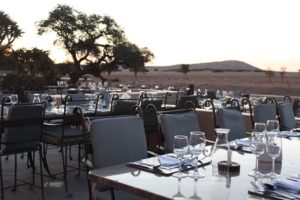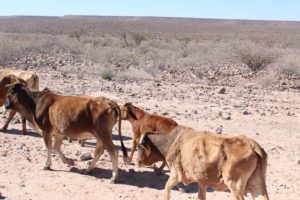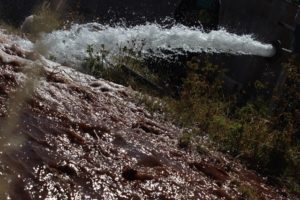As a child raised in rural America, the severe importance of communal conservation had little importance to me. My family had an individualistic approach to issues of land and water regulations. We believed there would be enough of these natural resources to last our lifetime, which was all that mattered. The world’s natural resources are vital to life, but will be depleted before too long. After having spent three weeks traveling throughout Namibia, I can personally attest to the challenges facing urban and rural communities.
Located in Southwestern Africa, Namibia currently has extreme conflicts with its management of natural resources. The past three years have had very minimal rainfall, causing many issues throughout the country. The capital city of Windhoek typically receives an average of 1700mm during the summer rainy season, while some desert areas may only get 15mm annually. Between vast desert lands and an arid atmosphere, Namibia has shortages of arable land and a dwindling supply of water. There are three dams supplying water to Windhoek— Swakoppoort, Von Bach, and Omatakoheld — a combined 32.4% last year, but are currently holding only 14.7% of their capacity. Many of these problems are accompanied and worsened by resource mismanagement in various communities.
One evening at the Karibib Farmers Association meeting, I posed a question to a member, Urs Kraehemann, who seemed to have vast knowledge of systematic farming logistics. I asked what types of restrictions he would place on water usage during this current drought if he were in the position to enforce regulations; his response was, “That is not my problem because I have my own water, that is their own fault.” I was blown away by his lack of concern in these desert conditions and viewed this perception as a problem.
While viewing the film Milking the Rhino, I was able to see another conflict in natural resource management. Having different occupations makes it easy for people to rank their own individual needs above those of others. While one person may want to rid his land of lions because they are killing his cattle, another person who guides lion hunts will lose a substantial amount of income due to the killing of this predator.

The Sossusvlei Lodge is an example of a collaboration of resources to bring tourism into a community while preserving the natural resources around it.
Tourism has become a large source of income in Namibia, but has to maintain boundaries to preserve what makes this country beautiful. Lodges, rest camps, and various locations for activities greatly boost local economies, but must be maintained appropriately so as not to disturb the natural resources because tourism is based on these resources.
In essence, I believe that managing community-based natural resources comes down to respect through the utilization of communication throughout a community. Discussing your land and water needs with others is necessary to have successes. There will never be a region that can thrive without each person understanding and respecting his/her neighbor. Coming to consensus in the community is vital to the proper and equal usage of resources.

